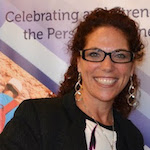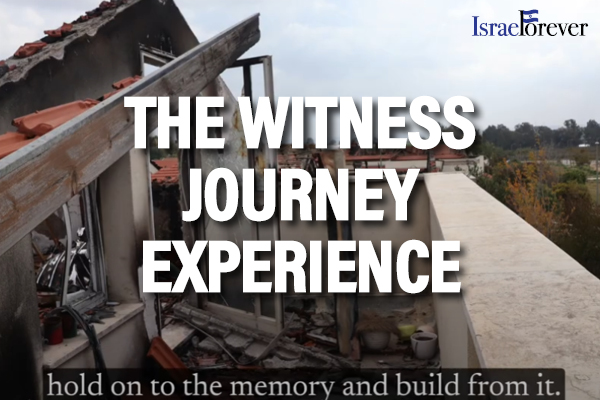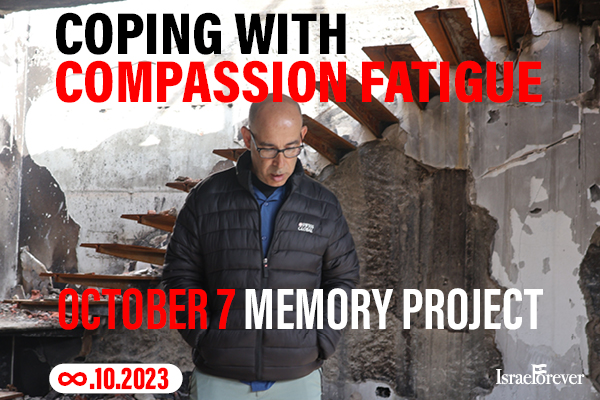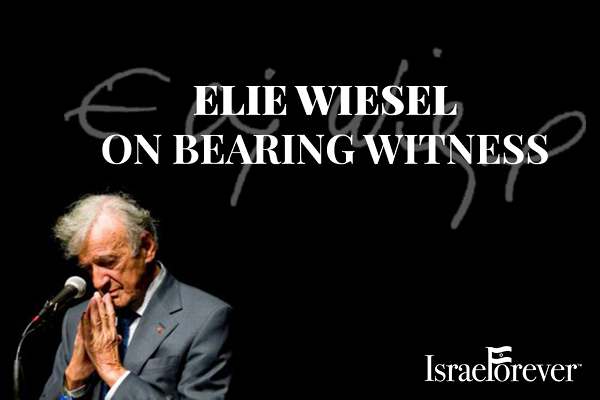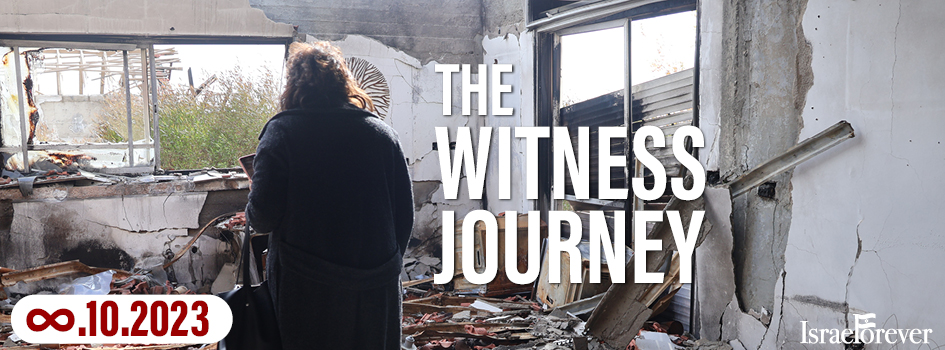100 days had passed and I felt myself compelled - I could not put it off any longer. I must go, I must witness, I must think of how I could be a part of what I felt - in the depths of my soul - was a calling, a connection with the memory work that needs to be done.
Only official groups and “influencers” had yet to be allowed to enter the zones of destruction. The communities, the homes, the beds of blood. The need to protect the integrity of the space was challenged by the need to attest to the atrocity. The denial was almost immediate, and every shred of evidence and personal witness was essential to ensuring that Israel’s story would be told.
Social media was immediately filled with videos of the destruction, eyewitness testimonies, visitor accounts, all right alongside videos of the abuse and murder of October 7. We lived the experience vicariously through their images and words, and our own nightmares and pain.
But nothing can compare.
And nothing can replace the experience of standing on those grounds and confronting the comparisons that will inevitably be made.
As a Holocaust educator since my youth, I feel a unique responsibility to address the internalization, memorialization and relevance of this atrocity. Like other Holocaust educators who have touched the edges of that hell, we know that this Black Shabbat bears no resemblance to the systematic gassing and decade of legalized persecution of Jews during the Holocaust. We know that we bear an obligation to protect the integrity of each experience for its own sake. We also know that we must translate our knowledge into insight for a Jewish world living in the aftermath of the massacre.
Just as the Holocaust was above politics, so, too, must our relationship with and understanding of October 7, 2023. The onslaught of venomous hate that has emerged in its wake is a threat to Jews everywhere. The unmitigated evil unleashed on 16 Jewish communities, sexual and animalistic violence, beheadings, and burning alive, and an entire country under missile fire with calls for repetition of these genocidal acts resounding in every corner of the globe. We are all living under threat.
What saves us, the Jewish people, as we enter the next chapter of our existence will be the lessons learned as we became October 8 Jews. While some advocate, fight for truth, join every rally, sign every petition, others do not know what to do, or how to make sense of the existential crisis we are facing - as a collective, and each of us with ourselves, our families, our friends.
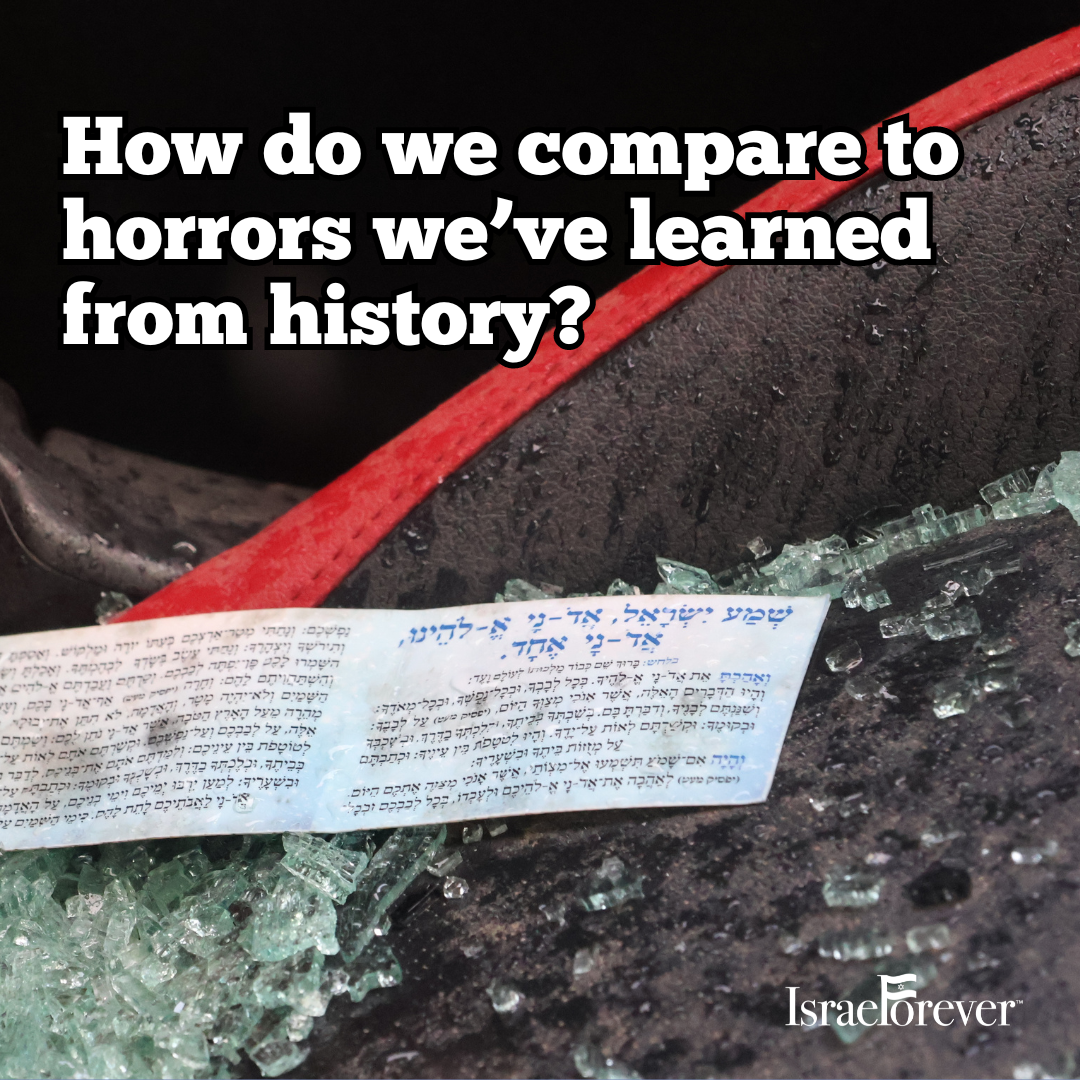
For decades, people have followed the call of the Holocaust survivors like my mentor Elie Wiesel implored of the world. “He who listens to a witness becomes a witness,” he said, and the world listened. In the first years, no one wanted to listen. And then as more began to speak, there was a confidence in the values that could be gained from learning about the Holocaust. Today we see that even Holocaust education has become a conduit for igniting resentment, animosity, distorting truth to foster hate towards Jews and Israel. The same has happened in the span of a few months since October 7.
While some long to witness every testimony and graphic visualization of the horrors, others cannot bring themselves to see. They do not see the humanity of the victims, they only see that of the Gazan population who suffers the consequences of their years of support of Hamas terror. They do not see the threat that hovers in the coming years as the venom flows through the social spheres, and they refuse to see the writing on the wall just as in generations before us.
It is for these reasons that we must force ourselves to become witnesses not only to the victims and survivors of the Nazi Holocaust, but to the victims and survivors of all anti-Jewish racist and nationalist hate and calls for annihilation. We must find careful ways to endeavor into the work of atrocity memory - to make sure that we do not tread disrespectfully on unjustified parallels of the Holocaust, or to ignore October 7 as one of the crucial moments in history that challenges us on this path. In a world of AI and fake news, the events will be distorted and reinterpreted. Hearing testimony first hand can inspire a personal connection. But as the flowers begin to bloom again and the gaping burned out roofs are torn down to make place for new building of Jewish life in these communities, the survivors will transform their pain into growth as Israelis are known to do. The space of death will breathe and dance again, and the harvest seasons will continue.
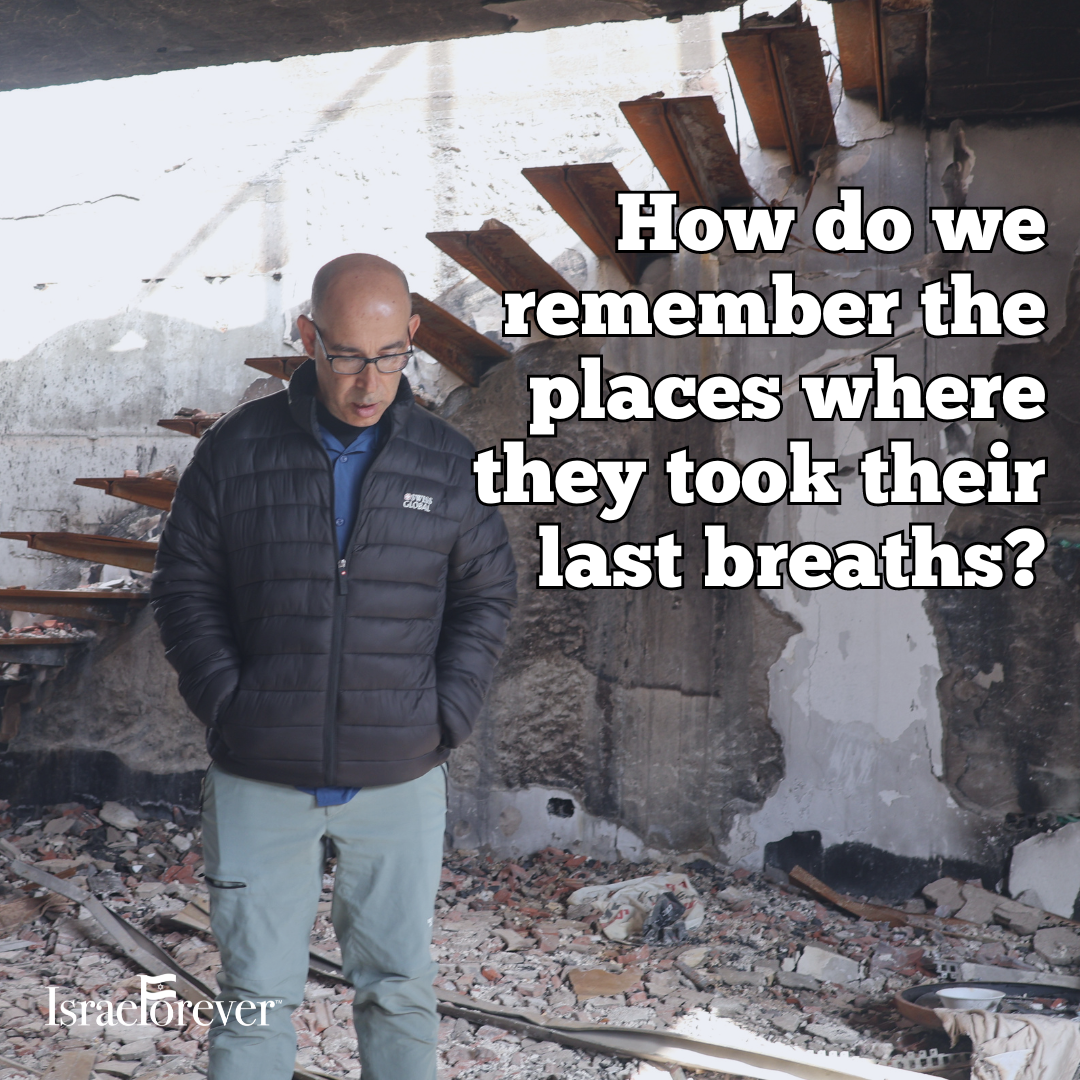
Soon enough, tourists will feel a need to “balance” the story of Jewish life and renewal on land they still do not recognize as ancestral to the Jewish people. They will insist to learn about Gaza - creating a parallel to the demographics, economic, political & social reality and the relevance of the wider conflict as the context from which October 7 gets rationalized. Expert educators will have to protect the citizens from those flocking to the scenes of tragedy and make sure that it does not become something akin to a spectator sport or one that translates, as some “nuanced” tours of the past, into apologetics for Palestinian Arab Islamofascist terror.
We have to find a way to integrate the memory of loss, the shock of the violation on Jewish freedom and Jewish human rights with the appreciation of the region as an essential part of our collective, an example of Jewish will and determination, a beacon of light on the historical annals of Jewish pride where people will continue to come and visit and volunteer in the fields and buy from local stores and support the small businesses and help rebuild livelihoods for the communities that will thrive again soon enough. However, such experiences must be carefully crafted to safeguard the privacy and sacredness of the sites of this tragedy.
Only when we find ways to make memory meaningful are we able to contemplate, discuss, debate, and live in a way that ensure their deaths are not in vain. October 7 is an awakening moment for Jews everywhere, and the way we become witnesses and what we choose to do with it is as important as it has ever been for the breadth of Jewish history.
This memory journey was not only a journey of remembrance but a journey to carry into the future as a reminder that Jewish pride and strength are paramount no matter what. The reminder that no matter what our detractors say, they truly hate us. No matter what the world says, we will never forget or forgive the Hamas atrocities of October 7th. Even if a single so-called global women's organization or other so-called human rights does not care to give us our due respect. We will provide this due respect and human rights to our beautiful little girls and boys and women and men who were horrifically violated sexually, emotionally, physically, and mentally. Who are still being traumatized and abused at every level in the #Hamashell. We now have to relate to the world and not just the Arabs on our own terms because, as we have seen, no matter what we do, they hate us. They hate us when we are strong, and they hate us enough to crush us when we show signs of weakness. They will never destroy the Jewish spirit or our precious homeland, Israel. We will stand strong through it all and know that our greatest asset is our unity, remarkable strength of purpose, and courage. Our beautiful warrior children are our courage personified, and we are right behind them, cheering them on with our strength of purpose and integrity of being. Am Yisrael Chai!

We are not short of evidence posted online, constantly scrolling past the thousands of stories, images, and videos capturing some of the horror that ensued on October 7th, including the evidence posted by the perpetrators themselves. Yet, it does not take long to find examples of denial by those who hate us. If a witness journey will make little impact on those who hate us, is there any point in witnessing at all? What should we expect from such a journey?
For those who had the opportunity to see these sites of the October 7th massacre, we have provided questions to deepen that experience. Even if the moment has passed. We cannot treat a witness experience like we treat the scrolling of social media. Thinking about these questions is to bring your experience into the present. Only by doing this can the experience transform your life.
Perhaps coming to see the sites in person is not a viable option right now. Perhaps the only experience is the experience of scrolling through the posts of influencers on social media. If so, how can you treat what you see a little differently from the rest of what you see? To not become desensitized to one of the greatest traumas Israel has ever experienced, we invite you to pause. We invite you to bring these questions into your life to discuss them with your family. To question and debate - why witness at all? And to what extent do our responsibilities change when we do witness?
I want to share something that happened when I was part of a group that did a tour of sites in the south. We were at Be’eri, which is fenced and only VIP and donors are allowed inside. So we were outside the fence, and I was on the far edge of the group, taking pictures through the fence, when a young man, probably in his early 20s, not wearing military clothing, walked up to me and with a lot of hostility said, “Do you know what happened here?” “ Why do you take pictures?”
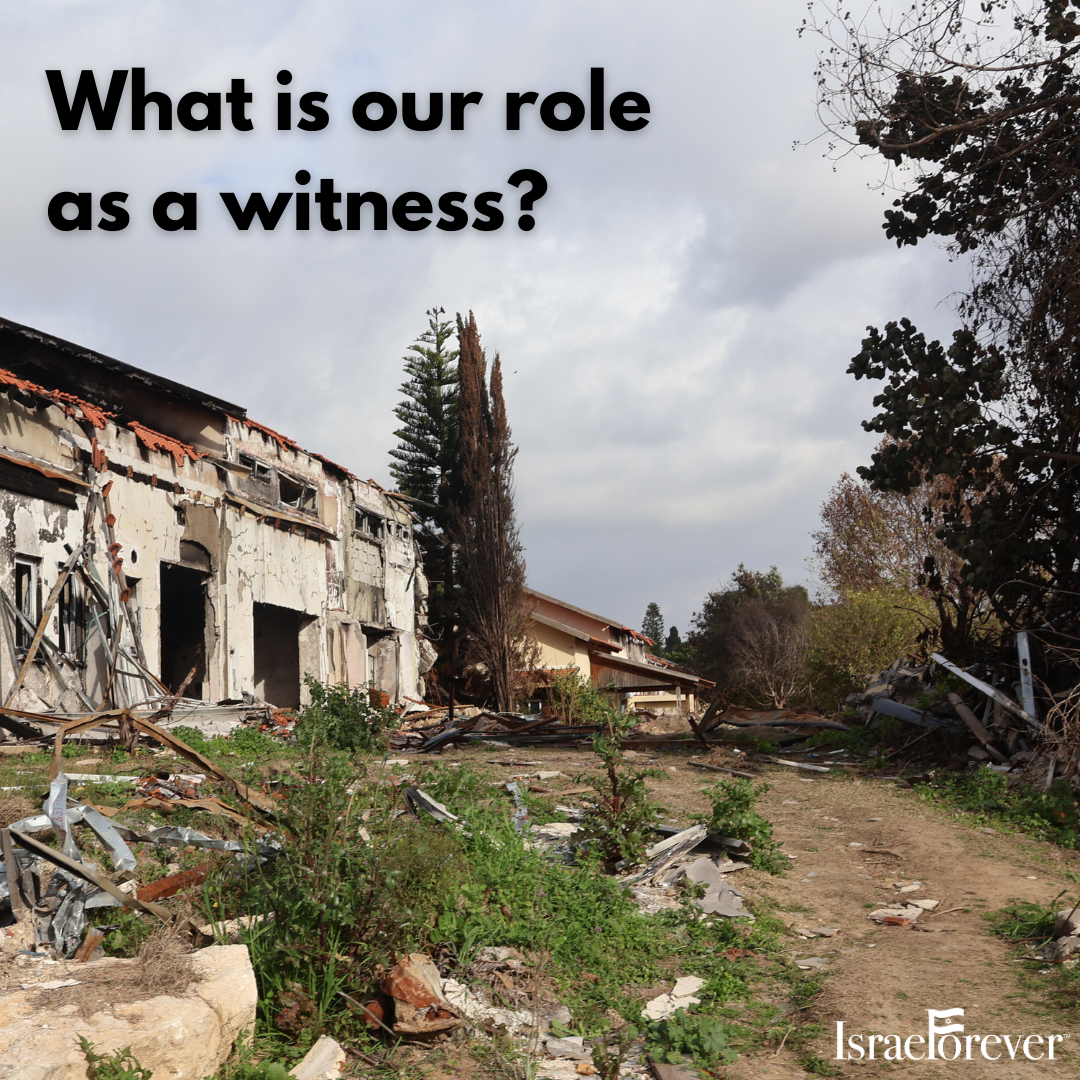
I gently explained to him that there are people in the rest of the world who don’t believe that Oct. 7 happened, and I was taking pictures because I want to be able to show them that it did. He seemed to accept that, albeit painfully, and then said to me, “I feel like an animal in a zoo and you come & you take pictures.”
I told him I was deeply sorry for everything, and that I wished I could reach through the fence and give him a hug.
It seems inevitable that more and more tour groups will go down there, and already yesterday people were taking selfies of themselves in front of the fence and other locations - making it about them, and not what they were witnessing.
I don’t know that there’s any real way to navigate the desire to bear witness with the need for some people to have privacy in their grief, (while the goal of some visitors is to get their Instagram vanity photos) but his comments have been weighing on me. I also want to recognize that some survivors find it cathartic to share their stories, but I think the lesson is the same regardless.
There was a lot of disrespect from some members of the group I was with yesterday at various points during the day. I want to urge anyone heading to the south to remember that we are voyeurs into the pain and suffering of others, and to behave accordingly with decorum and respect. (For instance, the kibbutz guard who held back dozens of terrorists for hours - who lost four friends and has four held hostage- probably didn’t appreciate the joke someone made about his being bald.) This isn’t a school field trip. We don’t know what anyone who can see or hear us has gone through - including others on the tour, who may themselves have connections to the victims of Oct. 7.
Keren Schwartz
QUESTIONS FOR CONSIDERATION:
- How do we talk about the things we witness with our children? What is the appropriate way to describe the horrors we see, if at all?
- How should one compose themselves the days following witnessing the trauma? Do we go back to normal, or should we act differently? Should we give ourselves time to digest?
- Is it appropriate to witness at all? How can we stand in the places where people took their last breaths?
- What should be our intentions when we go on a witness journey?
- Having witnessed such atrocities, what lessons should we take with us into our lives?
Looking for a personalized discussion or program for your group of friends or community? Contact us to find out more about available opportunities.
To support the Witness Journey and other programs to protect Jewish memory, rights, and peoplehood, click here.
Recommended for you:
About the Author
